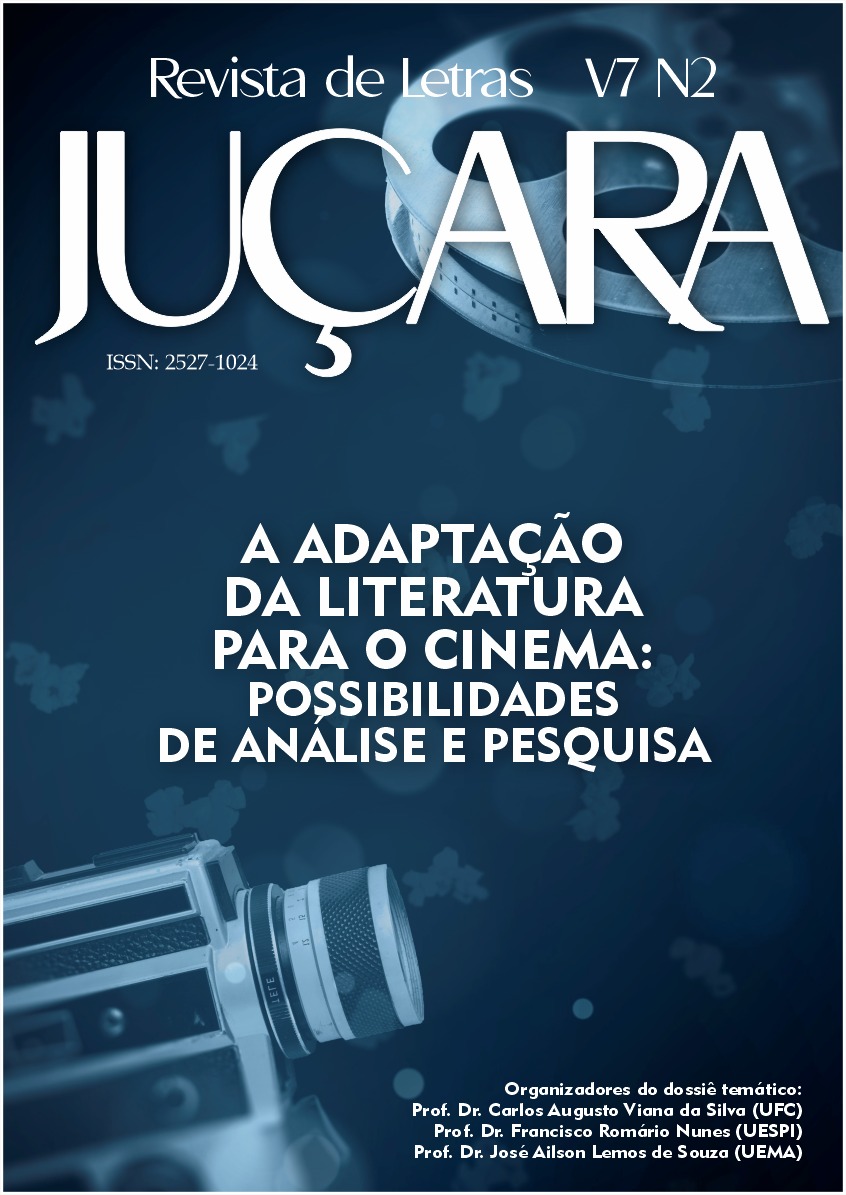IF BEALE STREET COULD TALK IN THE MOVIES: ADAPTATION FROM A NON-DERIVATIVE PERSPECTIVE
DOI:
https://doi.org/10.18817/rlj.v7i2.3480Abstract
This paper presents an analysis of the adaptation of the novel I Beale Street Could Talk (2019), by James Baldwin, into the homonymous film written and directed by Barry Jenkins (2018). In order to do so, we discuss Baldwin’s perspective (2020) on literary creation and its dialogue with the discussion presented by Harpham (1999), Serpell (2014), and Morrison (2020). The brief analysis on the novel highlights frames of intimate gatherings and tenderness as a strategy for survival and an alternative to the stereotypes associated with the African American experience in the United States. For the discussion on Jenkins’ adaptation, we first delve into the studies of the discipline based on texts by Hattnher (2013), Hutcheon (2013), Elliott (2014) and Leitch (2003, 2008), with a focus on the concept of non-derivative adaptation, which conceives that process as going beyond a mere consideration of a source text (novel) and its target (film). In the film, we interpret the cinematography, characterized by subdued tones and shadows, in dialogue with Baldwin’s thoughts on social critique in the arts. Additionally, the director adapts the frames of tenderness from the novel by drawing from this own reservoir of memories, marking the process as an aesthetic dialogue in which artistic creation prevails.
Downloads
Published
How to Cite
Issue
Section
License
Copyright (c) 2023 José Ailson Lemos de Souza

This work is licensed under a Creative Commons Attribution 4.0 International License.
A submissão de originais para a Revista de Letras Juçara implica na transferência, pelos autores, dos direitos de publicação. Os direitos autorais para os artigos publicados nesta revista são do autor, com direitos da revista sobre a primeira publicação. Os autores somente poderão utilizar os mesmos resultados em outras publicações indicando claramente a Revista de Letras Juçara como o meio da publicação original.


